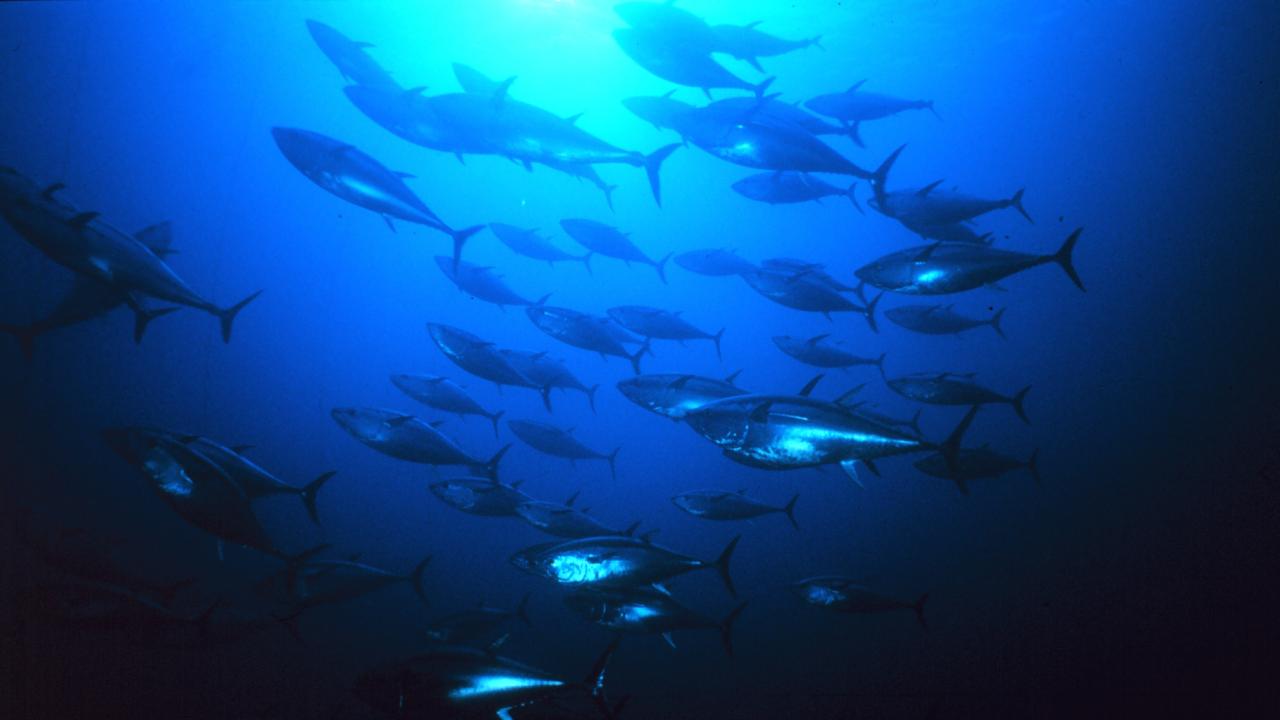
"Those who forget the past are condemned to repeat it," George Santayana once famously wrote. Yet the well-worn adage we accept as true for humans might not apply to another species with a troubled history - the Mediterranean bluefin tuna.
A model by researchers at ICTP, in collaboration with marine ecologists in Denmark, suggests that the fish may have lost their collective memory of where to find the tastiest herring. The model, published in the June 6 issue of the Journal of the Royal Society Interface, might help to explain why the tuna have yet to return to their old feeding grounds, despite the reappearance of their once overfished food source.
The population of bluefin tuna that spawns in the Mediterranean used to head north to Norway to feast on herring in the late summer. As a result, a productive and efficient fishing industry sprang up based on the tuna's migrations, capturing both tuna and the herring they ate.
"All of a sudden, from one year to the next, the population of tunas which were there just disappeared," said Matteo Marsili of ICTP, senior author on the paper. "You would like to understand why the phenomenon occurred."
The mystery of the tuna's sudden disappearance and failure to return is just one collective animal behaviour for which researchers are currently gathering large amounts of data to understand. "There is a surge of interest in trying to model these data and also to understand what are the underlying mechanisms by which these individuals...make collective decisions," Marsili said.
Marsili and SISSA PhD student Giancarlo De Luca built a very simple model to explore this question. The model describes a frequently changing network between fishes and their neighbors. The rules are simple: if two fish swim in the same direction, they can form a link, but if they swim in different directions, they won't be part of the same group. "What you have to model is how this network evolves...with the decision that each individual fish takes," Marsili explained.
Using these general rules, the model found that individual fish contributed to a collective memory of which direction to migrate. Removing knowledgeable fish, as might happen through fishing, resulted in a sudden change in the direction of travel -- exactly what happened to the actual tuna.
Unlike previous models of collective animal behaviour that incorporate more detailed information, the simplicity of the model designed by De Luca and Marsili provides a more generally applicable solution.
"This model gives us a picture of what is going on which is very complete and where you really understand what depends on what," Marsili said. That means that the model could also be useful for studying the behaviour of other animals for which researchers are collecting data on individual movement, such as birds and flies.
Link to the abstract is available on the Journal Website.
















